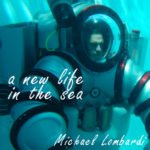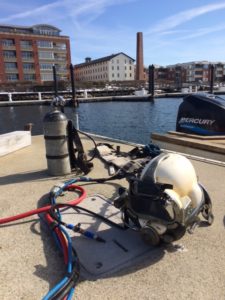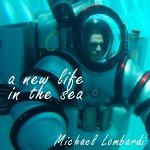 As hard as the days can be, the entire experience of a days worth of diving in the mud is nothing short of value packed. And after a hard days work, the level of appreciation for having the opportunity is always elevated. This past week’s activities: wet welding.
As hard as the days can be, the entire experience of a days worth of diving in the mud is nothing short of value packed. And after a hard days work, the level of appreciation for having the opportunity is always elevated. This past week’s activities: wet welding.
I’ve written about underwater welding a few times, but figure its worth elaborating upon a bit given that it’s fresh, and as I sit here to write I am still suffering in the aftermath. I’ll start by saying that welding is not my strong suit, but it is one of the things I enjoy the most about commercial diving. There are so many subtleties to the process in that it requires a very slow hand, patience, focus, grace and at the same time is incredibly harsh on the body.
Here in inland diving territory, we call it ‘mud diving’ because in most cases the bottom is a muddy mess and much of the work takes place in near zero visibility. That means working by feel. After hours upon hours of working in the blind, your situational awareness becomes dialed in, and you can do almost anything by touch alone. This includes welding…checking the fitment of parts for gaps, striking an arc, and moving the rod can all be done by feel, even through a doubled up pair of thick rubber gloves…it’s a pretty amazing thing to think about, especially when you see positive results.
This past week made me think about other senses, and dialing in their adjustment to the conditions at hand. Of note – the smells and sounds of working underwater.

At the surface, the job site is almost always loud – compressors and other machines running, squeaky feedback over the comm box, the splash of a tool bucket dropped in the water…all sounds taken for granted as part of the routine. It’s chaotic – lots of yelling to be heard over the ambient noise which only adds to mounting frustration and discontent amongst already disgruntled members of the ‘team’. However, slip into the hat (diver’s helmet), and then underwater, and it truly is a silent world. All of the ambient noise disappears and you settle in to the rhythm of your own breathing, and very short muffled discussions over the comm box. When welding, you add the stink stink of a chipping hammer to clean surfaces or knock the slag off of welds, and then of course the sizzle of the welding rods burning. The pitch and tone of that sizzle can tell you lots about the weld – which is important when you can’t always see it. Too much sizzle and the weld is likely full of spatter with holes burned through the steel. Nice welds have a sound and feel that is smooth…it’s a hard balance to find, and like anything, it comes with time in the water.
And then there are the smells…topside the musty funk of a damp wet or hotwater suit is so inviting (really, it is) first thing in the morning. The morning air is crisp, and the smell of gasoline, oils, and that funky suit fill the air. There is nothing better…it’s the start of a perfectly peaceful day. Then, slip underwater and one would think the smells vanish. To the contrary, your sense of smell becomes very sensitive. While mucking up the bottom, you can smell and even taste the essence of rotten seafood through the hat. Wonder why I don’t east seafood? Try breathing clam chowdah 8 hours a day. Add in the steam and sweat from diving with hotwater suits, and that rotten seafood stink becomes a part of you. At the day’s end, the smell follows you home, and it’s embedded in your hands.
Hands are a separate issue. Every nick in your gloves is a place to take a hit from the 180 amp welding circuit. The burn is tolerable but does a job on any small cuts, warts, blisters, and cracks – basically cinges the open skin. That makes great space for oil and grit to embed itself. After a week you learn to live with it. After a decade or more your hands are harder than rocks…subject for another essay.
As hard as it sounds, while ‘in it’ you learn to appreciate just how special the experience is. All of those smells and sounds that drive many people away from the business become what you thrive on, it becomes a drug. Once you’re in it and live it, there’s no going back; only deeper, and forward, towards a new life in the sea.



